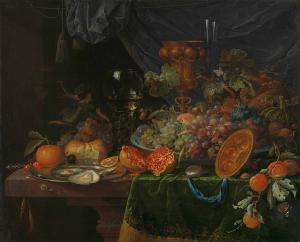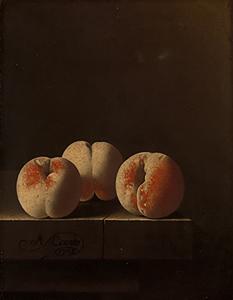“We beg you, God, make us truly alive.”
It is a profound mystery that the quotidian moments of daily life can simultaneously be the cause of significant despair and the crucible of spiritual formation. Humanity desires a life full of meaning, fulfillment, and ecstasy and the human paradox, however, is that these things are found only by welcoming the mundanity of the present moment as a holy sacrament. The 17th-century Jesuit priest Jean-Pierre de Caussade devoted his life to pursuing what he called the sacrament of the present moment, the commitment to experiencing every fleeting moment as a holy sacrament. According to de Caussade, no moment is trivial, since each one contains a divine Kingdom. Blessings, more often than not, come from mundane and unexpected places: like the dinner table.
Food, a divine and humbling enigma, can be the source of abundant formation; for eating is intrinsically an invitation to celebration and transformation. Although it is feasible to describe food and eating in several ways, what food is and why eating is transformative is best understood by God’s own Trinitarian life of care and celebration, hospitality and communion, gift and sacrifice. Theologian Norman Wirzba in his book Food and Faith describes the importance of having a theological understanding of food as this:
Trinitarian theology asserts that all reality is communion––the giving and receiving of gifts–– because it has its source and sustenance in the eternal Triune love described by theologians as perichoresis, a making room within oneself for another to be. This means that nothing in creation exists by itself, in terms of itself, or for itself.
In keeping with this view provided by Wirzba, we cannot truly understand food until we perceive, receive, and taste it in terms of its origin and end in God as He who provides for, communes with, and reconciles Creation back to wholeness. Food is a gift of God given to all Creatures for the purposes of nurturing, sharing, and celebrating. When it is done in the name of God and to the glory of God, eating is the earthly realization of God’s eternal communion-building love.
When the early Christians went to the desert, they prayed, “we beg you, God, make us truly alive.” That fourth-century prayer was not the prayer of a people who apathetically awaited their ticket to heaven. Rather, that prayer was the urgent cry of a people who, like Jean-Pierre de Caussade, desired an awareness of God’s presence in the everyday moments of life here on Earth. Those fourth-century monastics fled to the desert because they were being drawn toward life and towards an embracement of the sacrament of the present moment.
Like these early monastics, may we have a desire to live a life of integrity and wholeness, to become more fully alive. And although we may not be able to look for the fulfillment of those desires in the desert, we may find it around the table, where blessings often come from.








